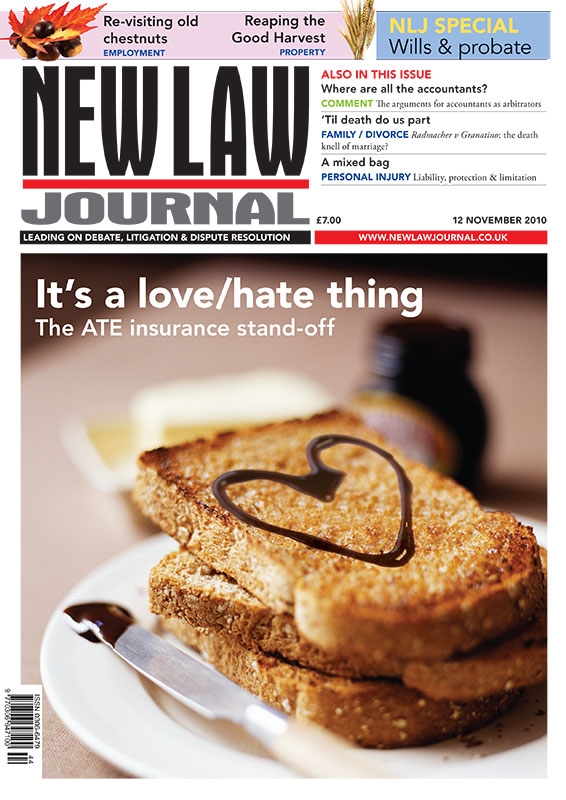
Arbitrations offer the parties engaged in a dispute some choice in the selection of arbitrators
Jackson LJ’s proposal that a party should not be able to recover the cost of their After the Event (ATE) insurance premium has generated a lively debate. Like Marmite, either you love it or you hate it
Ian Smith holds on to his sanity...and revisits some old chestnuts
Jonathan Herring on the death knell of marriage
Rehana Azib reports on liability, protection & limitation
John Furber QC revisits authorised guarantee agreements
Ed Mitchell reports on council & court failures to deliver community care
Graham Reid provides a [crash] course in settlement drafting
Paul Hewitt, Paola Fudakowska & Adam Cloherty report on declining capacity, mutual wills & rectification
Siblings’ dispute father’s will: Michael Tringham reports
MOVERS & SHAKERS

NLJ Career Profile: Ken Fowlie, Stowe Family Law
Ken Fowlie, chairman of Stowe Family Law, reflects on more than 30 years in legal services after ‘falling into law’

Jackson Lees Group—Jannina Barker, Laura Beattie & Catherine McCrindle
Firm promotes senior associate and team leader as wills, trusts and probate team expands

Asserson—Michael Francos-Downs
Manchester real estate finance practice welcomes legal director







